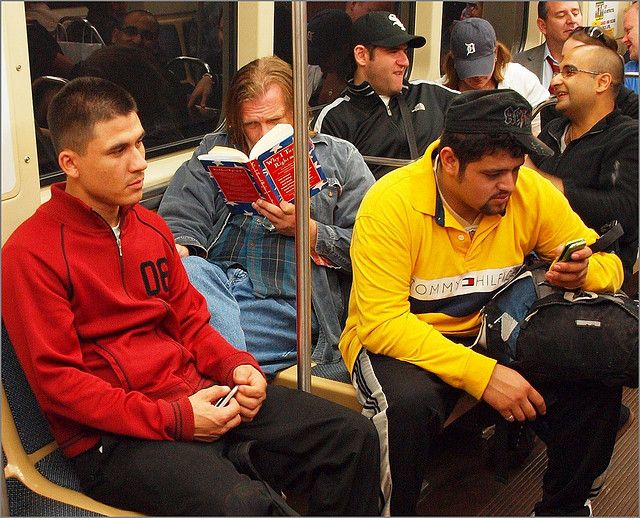While reporting for my recent Forefront story about Urbanism 2.0, I spoke with John Tolva, chief technology officer for the city of Chicago and IBM’s former director of citizenship and technology. He spoke of the many apps local developers have created to take advantage of publicly available city data and of his department’s efforts to roll out Open 311 — an advanced service request tracking system that went public last month. Almost in passing, he mentioned a little side project.
“We’re also thinking about Twitter as a request mechanism,” said Tolva. “People complain about, ‘this ‘L’ car stinks,’ or ‘a tree just fell down’ or ‘I got sick at this restaurant.’ We’ve built a system that parses geo-located tweets in Chicago and looks for key words and rolls this up for review. The goal is to get the system sensitive enough to kick off those reviews automatically.”
The idea of Twitter as a citywide suggestions and complaints box came into the public consciousness over a year ago, when a group of researchers at Purdue University searched thousands of geo-tagged tweets from presumed Chicago ‘L’ train riders to gauge broad sentiment and identify common complaints. The word clouds created from their analysis show how the frequency of certain words and phrases rose and fell as trains were delayed or, for example, faced a signal fire or fallen tree.
A key discovery was that people rarely make positive comments — you’ll look long and hard before finding a tweet along the lines of “the Purple train is running wonderfully this morning!” — instead saving their energy and 140 characters for problems, delays and unexpected difficulties. This may not sound terribly friendly, but it’s ideal for municipal officials, who have little need to hear about systems running smoothly.
Tolva may also have gotten a push in this direction at his previous job. IBM has developed a Social Sentiment Index, which it began peddling to cities this summer. Part of IBM’s Smarter Cities program, the system is purportedly able to tease aggregate public opinion out of the ocean of local social media commentary. Officials could use it to learn how residents are responding to a new trash pickup schedule or how new community policing efforts are being received on the West Side.
No cities have launched this system yet, but the handful of cities leading the charge into civic tech, open data and social media analysis are likely to be interested in such a tool. San Francisco officials recently launched an internal civic accelerator to mentor and fund local start-ups that use technology to improve government efficiency. The city’s Open Data initiative was among the country’s first, and has sparked the creation of a catalog of useful apps. ImproveSF, launched earlier this year, connects civic projects and ideas to neighborhood groups and activists. And of course, the city and the area are hotbeds for technological innovation.
New York City has a team of internal developers releasing apps like NYC 311, NYC Stuff Exchange and NYCrecycles. New Yorkers can crowd-source their city with NY Change By Us, a community projects site run by the mayor’s office, and the City Council’s Kickstarter page to fund small projects. Finally there’s the city’s Big Apps competition to support local developers and Mayor Michael Bloomberg’s $9 million Mayor’s Challenge.
As discussed in my Forefront article, Boston officials created the first-ever in-house civic apps developer team, called New Urban Mechanics. Co-founders Chris Osgood and Nigel Jacob have since launched some of the more innovative urban tools, like Citizens Connect and SpeedBump. Philadelphia has Philly Change By Us, a deal with crowd-funder Citizinvestor and the first New Urban Mechanics franchise.
But Chicago is no slouch when it comes to tech. In addition to Tolva and his chief data officer Brett Goldstein, there’s Open City, one of the country’s more active developers of city data applications. The team has created ClearStreets, which uses the city’s PlowTracker system to detail which streets have been plowed by Chicago trucks, and the recently launched How’s Business, which charts four key economic indicators — new business licenses, unemployment, building permits and foreclosures — to provide a snapshot of the city’s economic situation.
In July, the Knight Foundation awarded the Chicago Community Trust a two-year, $250,000 grant? to develop 10 mobile applications that use publicly available data sets as reporting tools. Five apps will help residents monitor government, and five will help solve community problems.
Chicago also has the Center for Neighborhood Technology, likely the country’s oldest innovation center for urban sustainability, founded in 1978. It has launched a wireless network, a car-sharing company and the Illinois Smart Grid Initiative, among other programs. In 2009 it became one of only eight organizations around the world to earn the MacArthur Foundation’s award for creative and effective institutions.
Finally, Mayor Rahm Emanuel just announced a plan to bring low-cost gigabit-speed WiFi to 15 emerging business zones and free WiFi to every city park. The neighborhoods include Bucktown/Wicker Park, Ravenswood, Loyola and DePaul universities, and the University of Chicago and the Illinois Institute of Technology on the South Side. This effort links in to a broader citywide push to develop a strong startup culture and establish a thriving technology sector, centered in River North.
The efforts of Tolva and his team have in recent months been centered on rolling out Open 311, but the Twitter response system remains on the docket. It’s likely to change the way Chicagoans interact with their city and local officials track project problems and success. Is the new garbage pickup schedule working? Any problems with changes to the Blue line trains to O’Hare? Tolva’s comments above suggest the system he envisions could go more small bore — responding to a tree fallen onto a roadway or a restaurant with regular cases of food poisoning.
An official, Twitter-linked response mechanism raises some questions. For starters, at what point would it consider an opinion strong enough to incite departmental action? Ten tweets? 100? And once this number has been made public, how susceptible might the system be to sabotage? Couldn’t a group of Occupy protesters join forces to mass-tweet about a non-existent riot or train crash in an effort to temporarily divert municipal energies and personnel?
These and other issues are sure to be addressed in the months to come. For now, the possibilities of Twitter — as the new 311, as an official suggestions box, as a 24/7/365, perfectly recorded Town Hall — seem fantastic. “If you look at Twitter in the aggregate it is a set of vital signs of the city,” says Tolva. “If you really want to know what’s going on the ‘L,’ you go to Twitter, and we think we can be proactive.”

A freelance journalist and editor based in Istanbul, David Lepeska writes about Islam, technology, media, and cities and sustainability, and has contributed to The New York Times, The Economist, The Financial Times, The Guardian, Metropolis, Monocle, The Atlantic Cities and other outlets.















